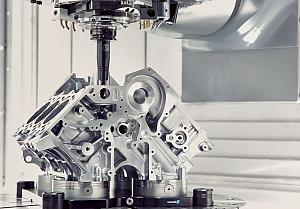Editor
- FMA
- The Fabricator
- FABTECH
- Canadian Metalworking
Going From Good to Great
- By Joe Thompson
- May 9, 2014
Will your company become the next Google or the next Nortel?
Five years after Nortel wheezed out its final death rattle, a new University of Ottawa report points to several factors, including a “culture of arrogance,” that caused the fall of the telecom giant.
Led by Jonathan Calof, associate professor of international business and strategy at the University’s Telfer School of Management, researchers recently released an in-depth analysis of Nortel’s fiasco. The authors opine that the company’s financial and technological dominance in the 1990s “led to a culture of arrogance and even hubris combined with lax financial discipline. Nortel’s rigid culture played a defining role in the company’s inability to react to industry changes.”
Between the years 1997 and 2000, Nortel doubled its revenue and tripled its share price. However, it also drunken-sailored its way through a spending spree of pricey and foolish acquisitions of other companies.
When the tech bubble burst in 2001, the company had already lost its focus on R&D, in-house product development, and, most importantly, profitability. It never recovered.
The U of O researchers also concluded that corporate operational mistakes, including the stripping of the R&D department, led to the company’s demise.
“It was felt by many R&D staff that management rarely listened to the engineers and that, when they did, they did not appear to understand,” the report stated.
So how do you keep your company from becoming a similar cautionary tale that keeps investment bankers and stockbrokers awake at night?
Chances are that if you are in the metal manufacturing industry, you already advocate one method.
In Good to Great: Why Some Companies Make the Leap … And Others Don’t, best-selling author Jim Collins preaches that great companies think differently about the role of technology.
Collins and his team analyzed the corporate histories of 28 companies for his book. They discovered that the key ingredients determining why some companies make the leap to greatness while others don’t include great (not just very good) leadership, a dedication to discipline in combination with entrepreneurship, and, not shockingly, proper technology implementation.
Collins writes, “When used right, technology becomes an accelerator of momentum, not a creator of it.”
It’s his opinion that great companies don’t adopt technology simply because it is trendy; rather, they vet each chosen technology. Ask anyone who bought a Betamax or a Pet Rock if they’d agree.
Some very exciting emerging technologies are coming to the manufacturing industry, but there’s also a fine line between innovation and insolvency.
There is no doubt that some of this next-generation technology will change the way we make our products. It also, however, needs to reduce the PO-to-payment time to keep companies profitable. Just ask Nortel.
subscribe now


Keep up to date with the latest news, events, and technology for all things metal from our pair of monthly magazines written specifically for Canadian manufacturers!
Start Your Free SubscriptionAbout the Author

Joe Thompson
416-1154 Warden Avenue
Toronto, M1R 0A1 Canada
905-315-8226
Joe Thompson has been covering the Canadian manufacturing sector for more than two decades. He is responsible for the day-to-day editorial direction of the magazine, providing a uniquely Canadian look at the world of metal manufacturing.
An award-winning writer and graduate of the Sheridan College journalism program, he has published articles worldwide in a variety of industries, including manufacturing, pharmaceutical, medical, infrastructure, and entertainment.
- Industry Events
ZEISS Quality Innovation Days 2024
- April 15 - 19, 2024
Tube 2024
- April 15 - 19, 2024
- Düsseldorf, Germany
CTMA Economic Uncertainty: Helping You Navigate Windsor Seminar
- April 30, 2024
- Windsor, ON Canada
MME Winnipeg
- April 30, 2024
- Winnipeg, ON Canada
CTMA Economic Uncertainty: Helping You Navigate Kitchener Seminar
- May 2, 2024
- Kitchener, ON Canada





















